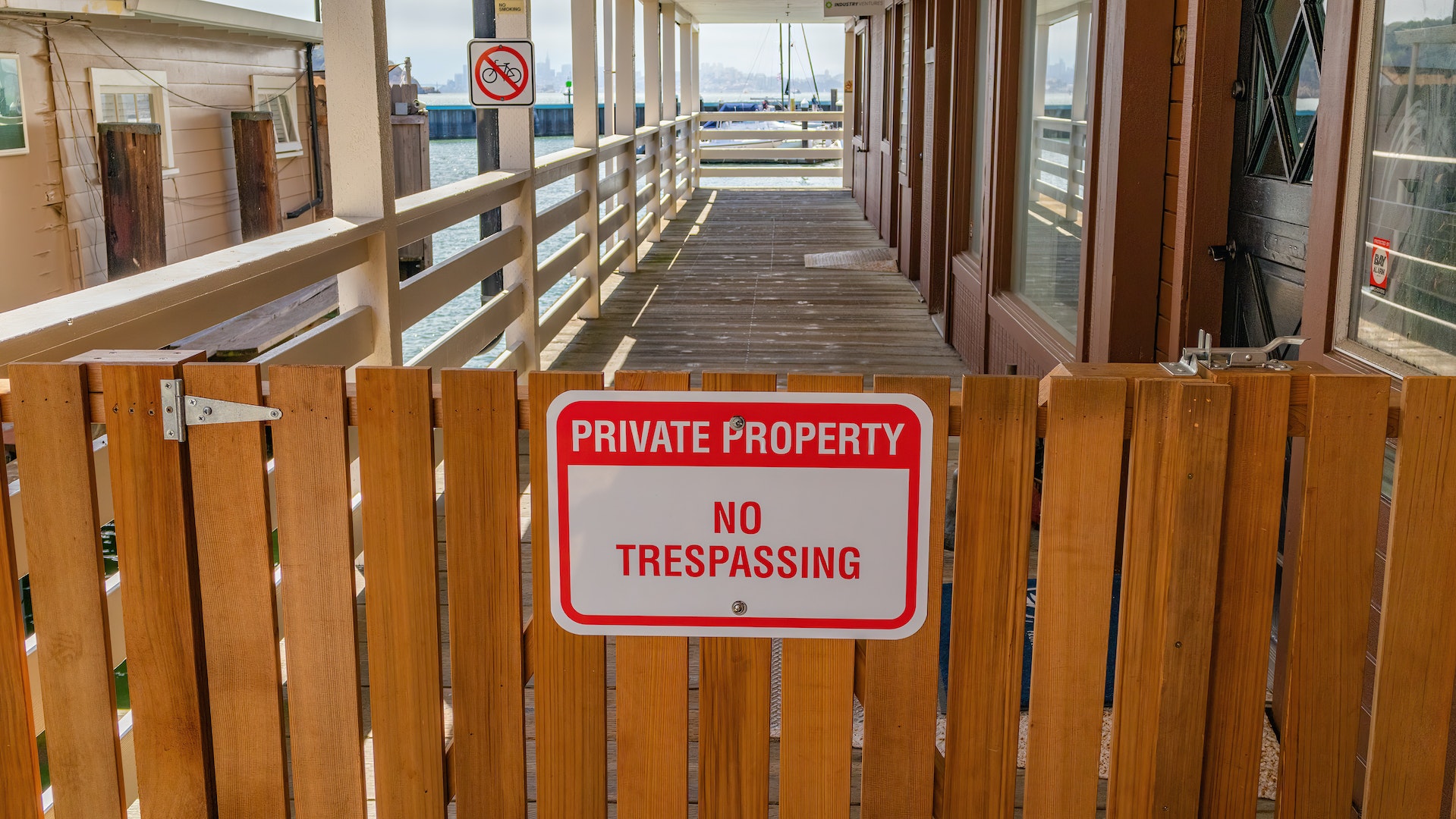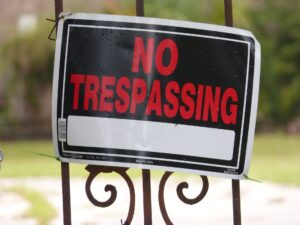Protect Your Property From Adverse Possession And Trespassing

Adverse possession is a legal doctrine that grants a person ownership to property that they do not own and have overtly used without the permission of the owner in a manner and for a period of time specific by state law. Adverse possession is also known as squatter’s rights and the adverse possessor is commonly referred to as the squatter.
Defining Adverse Possession Requirements
Each jurisdiction varies in common law requirements regarding the use of the adverse possessor to be granted title. The use of the property must be continuous, generally for 5 years including the payment of property taxes, by a single adverse possessor or between consecutive adverse possessors. Disability can extend the time for landowner’s time to challenge adverse possession. The use of the property must be obvious, open, and notorious, such that the owner of the property would have reasonable means of knowing of the adverse possessor’s use. The use of the property must be hostile—not necessarily forceful, but rather without a pre-existing agreement or license. As such, this disqualifies renters of property from obtaining adverse possession, as consent was explicitly given by the owner under the terms agreed upon in the rental contract. The adverse possessor uses the property that they do not own as if it were their own, without sharing control with any other entity.
Furthermore, the use of the property must be considered trespassing. California Penal Code Section 602 PC contains dozens of forms of trespassing, all of which encompass the definition of “entering and remaining on another owner’s property without the owner’s consent.” Other states may vary their definition of trespassing. In general, trespassing is an offense where: the defendant willfully entered and remained on the property for which they did not have ownership or consent; the defendant entered without ownership or consent, intending to infringe on the owner’s property rights; and the defendant infringed on the owner’s property rights.
If you believe that trespassing has occurred on your property, take action by consulting with a real estate attorney to pursue legal recourse.

How To Prevent or Deter Adverse Possession
“No Trespassing” Signs & Physical Boundaries
Owners of property may have greater legal recourse if they post “no trespassing” signs that comply with state laws, indicating that the property is private. A fence or physical barricade can indicate where the property is privately owned.
Property Inspections
Property owners should regularly inspect their property to ensure that no one has been using the property without their consent.
Real Estate Lawyer
If you believe trespassing has occurred on your property, or that your property is in danger of adverse possession, contact a lawyer immediately. A lawyer will provide you with legal counsel and help you file a civil case or court order to expel the trespasser.
If you have any questions about adverse possession or squatting on residential or commercial property, call San Diego Real Estate Lawyer Christopher Villasenor to help you with next steps.
Call Us Today: 619-375-2956
Email Us: chris@sdlawfirm.net
Disclaimer: The content of this website or any blog is for information or educational purposes only. Nothing on this website or blog should be considered legal advice for any individual case or matter. This information is not intended to create, and receipt or viewing does not constitute, an attorney-client relationship.
